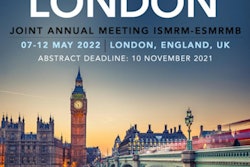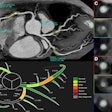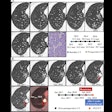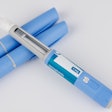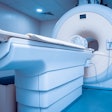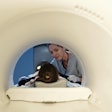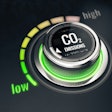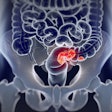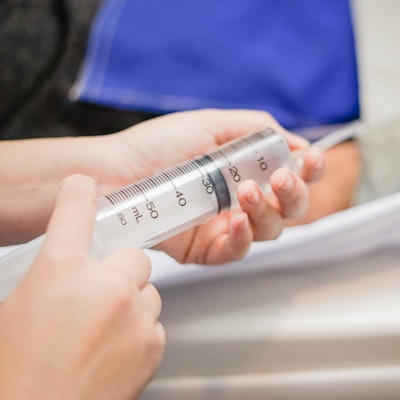
The American College of Radiology (ACR) has issued a statement regarding the global shortage of iodinated contrast media for CT exams, caused in part by GE Healthcare's supply chain problems for Omnipaque.
"The ACR recognizes that this is a rapidly evolving situation," the college said in the statement. "Guidance may be revised as circumstances continue to change."
The ACR's comment comes after the Greater New York Hospital Association (GNYHA) sounded the alarm May 4 about a temporary shortage of GE's Omnipaque. The company attributed the shortage to COVID-19 lockdown in Shanghai, China, where its manufacturing facility is located.
The ACR offered the following recommendations for operating under a contrast shortage:
- Use alternative studies such as noncontrast CT, MR with or without gadolinium-based contrast, ultrasound with or without ultrasound contrast agents, or use nuclear medicine or PET/CT, when feasible.
- Look for alternative versions of contrast agents.
- Obtain contrast from other vendors and try to have at least two vendor products on the facility's list of available medications.
- If you have access to higher-volume single-use vials, ask your institutional pharmacy if it is possible to repackage vials in smaller amounts to reduce waste.
- Minimize individual doses administered to reduce waste by reducing dose in conjunction with low kVp protocols, acquiring studies with dual-energy protocols, and saving higher concentration agents for angiographic studies and multiphase studies.
- Consider barium-based products for oral opacification in CT and PET/CT.
- Work with other departments which use iodinated contrast, such as urology, radiation oncology, pain management, gastroenterology, vascular surgery, and cardiology.
Just don't sacrifice image quality, the ACR urged.
"Ensure enough contrast dose is used for diagnostic image quality," it said.






